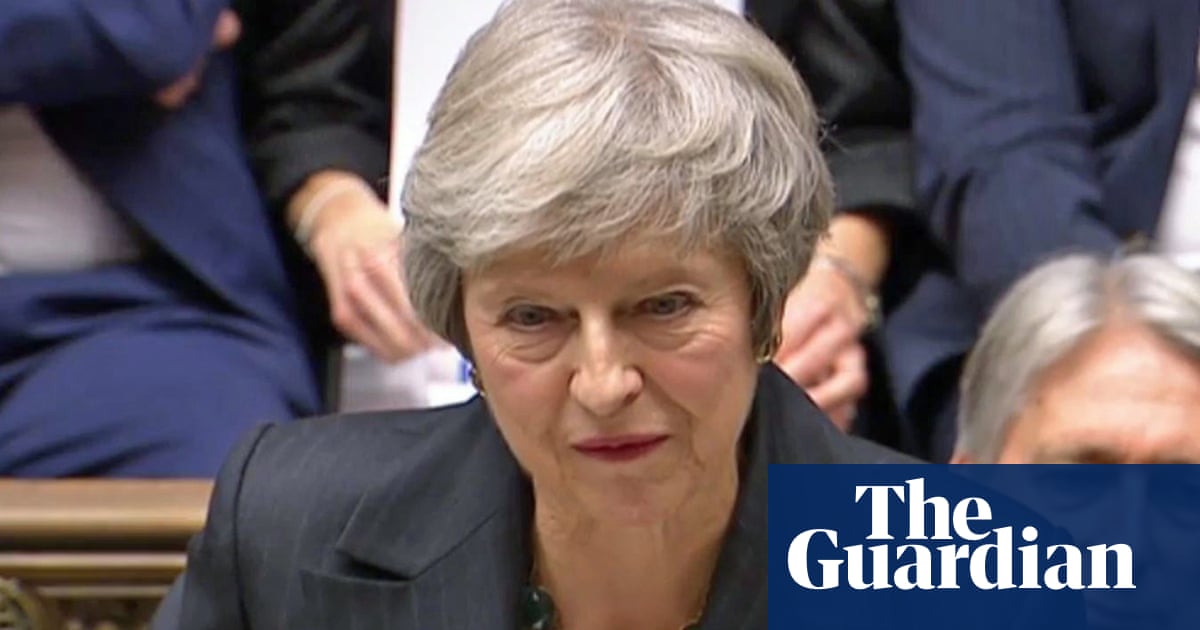- British prime minister and the EU-27 appear to be heading towards continued impasse
Gulf News
Andrew Hammond

With less than 50 days till the end-March deadlines for Brexit, British Prime Minister Theresa May faces another big week ahead in Parliament. On Wednesday she will give her latest statement to the House of Commons on her ongoing discussions with Brussels over the so-called Irish backstop with further EU concessions here remaining elusive, for now at least. Albert Einstein is sometimes credited with having said that the definition of insanity is doing the same thing over and over again and expecting different results. And the Brexit process, which increasingly resembles the hit 1990s movie Groundhog Day, may provide vindication of this over this Irish border issue.
May visited Belfast last week to stress her commitment, again, to ensuring there is no post-Brexit ‘hard border’ between Northern Ireland and its southern neighbour — the Republic of Ireland.
With the odds stacked against her, in a bid to save her UK exit deal, and possibly her prime ministership too, she is desperately seeking a way out of the impasse.
The longstanding challenge stems from the future status of the border between the Republic (which will remain in the EU) and its northern neighbour (which is scheduled next month to leave the Brussels-based club along with England, Scotland and Wales). The issue here is that because of the May government’s ‘red lines’ to leave the European Single Market and Customs Union, her Brexit deal contains the Irish backstop designed to avoid a hard border (any kind of physical perimeter or visible customs checks) between the North and South.
To be sure, all parties have repeatedly stated their desire to avoid a harder border. And the preference is to keep an open border in the context of a future potential overarching post-Brexit UK-EU trade deal to be agreed in the 2020s if May’s withdrawal agreement (or a variant of it) is approved this year.
Yet, if the United Kingdom cannot agree such a future trade deal in the 2020s, the backstop would be imposed by the EU-27 as a position of last resort unless or until other arrangements are agreed by all sides to ensure there is no hard border.
Under this backstop, Northern Ireland would stay aligned to some rules of the EU Single Market meaning that goods coming into the geography would need to be checked to see if they meet EU standards. It would also involve a temporary single custom territory effectively keeping the whole of the United Kingdom in the EU Customs Union.
Political storm brewing
Amid this complex regulatory and economic issue, a political storm of the first order is threatening not just the Brexit deal, but also May’s government. That is, while the UK Cabinet and EU-27 agreed the backstop last year, many Brexiteers in May’s UK Conservative Party and also the Northern Irish Democratic Unionist Party (DUP), whose MPs are propping up the UK government, are vehemently opposed to what they see as a toxic arrangement. They argue that the United Kingdom could, in effect, find itself “trapped” in this backstop for many years. And, moreover, that it could divide off Northern Ireland politically from England, Scotland and Wales in coming years.
With March deadlines ticking down, the odds are against May finding a breakthrough in February after around two years of previous negotiations. The challenges facing her are at least four-fold.
Firstly, the EU is currently refusing, for now, to renegotiate the Brexit deal. Secondly, there seems no obvious alternative to the backstop other than a future EU-UK free trade deal. Take the example of the UK government’s assertions of how digital solutions can help ensure that the Irish border remains a ‘soft one’, post-Brexit. Without question, digital technology can play a growing role in border tracking and management. Yet the nature of the Irish border casts significant uncertainty over whether current IT solutions can completely resolve this issue given the several hundred crossing points which an estimated 177,000 lorries, 208,000 vans, and 1.85 million traverse each month.
A third challenge for May is the significant demands of her Conservative and DUP critics. While some may be able to be bought off if she can secure a clear time-limit to the backstop, despite EU reluctance to concede such a firm end date, even this would not satisfy all these Brexiteers.
Fourthly, this issue is also politically charged in Ireland beyond the DUP. Last year was the 20th anniversary of the 1998 Good Friday peace agreement. While the deal has achieved significant success, it now faces a potentially major new test with Brexit with the spectre of a North-South ‘harder border’ and the threat of renewed sectarian tensions between Protestants and Catholics. Lord Trimble, for instance, who was first minister of Northern Ireland at the time of the Good Friday Agreement, winning the Noble Peace Prize, has previously said that any Brexit deal that leaves Northern Ireland with special status in the EU would kill a key tenet of the 1998 peace accord that there would be no constitutional change without majority consent in Northern Ireland. And he warned of the possibility that loyalist paramilitary groups could be provoked into action, again, if that core principle of consent was threatened.
Taken overall, May and the EU-27 appear to be heading toward continued impasse, without either side backing down. Failure to move forward in February means growing prospects of an extension of the Article 50 process which may only kick the can down the road, or the political and economic shock of a no-deal Brexit in March which no parties are fully prepared for.?


